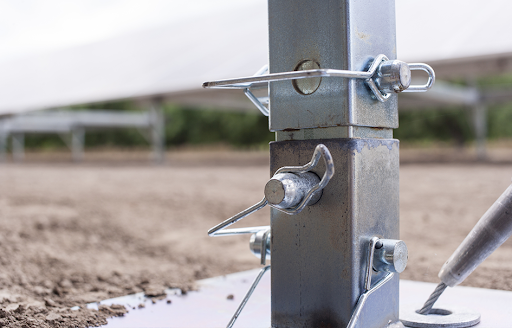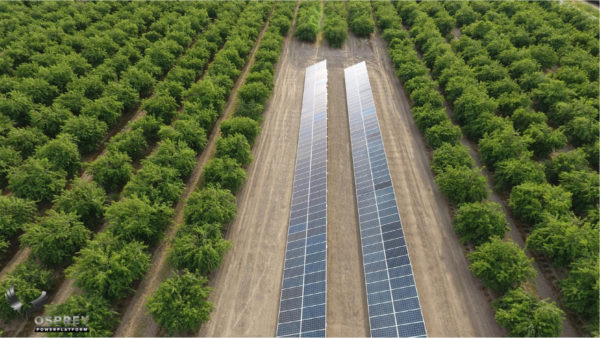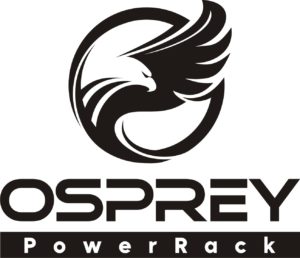100kw Commercial Solar Panels Cost & Options
Key Takeaways
- The average cost of a 100kW commercial solar panel system ranges from $200,000 to $400,000.
- Key cost factors include solar panels, inverters, mounting systems, electrical components, and installation.
- Financing options such as loans, leases, and Power Purchase Agreements (PPAs) can help manage upfront costs.
- Nuance Energy is a renewable energy company that specializes in innovative solar racking systems, notably the Osprey PowerRACK®, designed to simplify and reduce the costs of solar panel installations.
100kw Commercial Solar Panels Cost & Options
Why are 100kW Systems Important?
A 100kW solar system can make a noticeable impact on a business’s electricity bills and carbon footprint.
It’s ideal for medium to large commercial businesses that consume a lot of energy, such as mining plants and landfills.
This size system can generate enough power to cover a significant portion of a business’s energy needs, depending on location and usage patterns.
Key Cost Factors
Several factors contribute to the cost of a 100kW commercial solar panel system. These include:
- Solar Panels: These devices convert sunlight into clean, renewable electricity through the photovoltaic effect.
- Inverters: These convert the direct current (DC) produced by the panels into alternating current (AC) used by most businesses.
- Mounting Systems: The type of mounting system required depends on whether the panels will be installed on a rooftop or the ground. At Nuance Energy, we have developed a patented ground-mount system with earth anchor foundation technology. It greatly reduces the installation time and overall costs by reducing the number of trips to be made to the installation site, requiring no heavy equipment, and being suitable for smaller installation crews.

Here’s an example of our mounting system powered with Earth Anchor Foundation Technology–Osprey PowerPlatform®–at the Bonita Ranch Madera.
- Electrical Components: These include wiring, switchgear, and monitoring systems.
- Installation: Labor costs for installing the system.
| Nuance Energy is your superior solution for Ground Mount solar. Our patented foundation technology, in the Osprey PowerRACK®, allows for rapid installation using only handheld tools, significantly reducing both time and costs compared to traditional racking systems.
This cutting-edge technology works for residential and commercial installations, and Nuance Energy empowers solar installers to take back control of their installation schedules, control project COGS, gain market share, increase the speed of install, and reduce costs and labor. In contrast, a traditional ground mount is much more unpredictable, slower, and costly. Find out how Nuance Energy can accelerate your solar projects with the Osprey PowerRACK® line, and boost your profitability. Contact us today to discuss our innovative ground-mount solutions. |
Understanding 100kW Solar Systems
System Components
A 100kW system is made up of several components that work together to generate and convert solar energy into usable electricity. They are:
- Solar Panels: Around 250-300 panels, each typically 400W or higher.
- Inverters: Either one or two central inverters or multiple string inverters.
- Mounting System: The framework that holds the panels in place. Here’s where our products come into the picture.
- Electrical Components: Includes switchgear, cabling, and monitoring equipment.
Power Output
A 100kW solar system can produce between 1,000 and 1,300 kilowatt-hours (kWh) of electricity per year per installed kilowatt.
In yearly figures, 100kW system can generate approximately 100,000 to 130,000 kWh annually, depending on location and other factors.
Space Requirements
You’ll need around 8,000 to 10,000 square feet of space for a ground-mounted 100kW system. Rooftop installations require a similar amount of space, but the exact requirements can vary based on the roof’s layout and the type of mounting system used.

Nuance Energy’s Osprey PowerRack™ has a small footprint with only 74” to 82.5” spacing between front and rear legs. Note that pictured above is the Osprey PowerPlatform® at BR Samran Farms Madera.
Breaking Down the Costs*
Solar Panels
Solar panels take up a significant portion of the overall system cost. For a 100kW system, you can expect to spend around $42,000 on high-quality Tier 1 panels. The price can vary based on the brand (e.g., Canadian Solar, Jinko Solar, Solaria) and efficiency of the panels.
Inverters
Inverters are another crucial component. For a 100kW system, inverters can cost around $9,500. The type and number of inverters required can affect the price. Central inverters are less expensive than multiple string inverters.
Mounting and Racking
The mounting system holds the solar panels in place. The cost for mounting and racking a 100kW system is around $6,600. The type of mounting system— rooftop or ground-mounted system—can influence the cost.
The great thing about Nuance Energy is that installing our ground-mounted system is incredibly quick and affordable. Unlike traditional methods that require highly skilled and higher-wage field installers, our Osprey PowerRack™ can be assembled by a smaller, 3-4 person crew with just 30 minutes of training, using just handheld tools.
This team can set up a 10kW structure in about an hour, including racking, panels, foundations, and anchor load testing. With continued practice, crews can scale their installation speed to as much as 60kWs in an 8-hour shift, significantly reducing labor costs.
“We’re helping solar companies take back control of their installation schedules, saving them time and money because they don’t need to rent heavy equipment or hire expensive specialized crews. Older, more traditional ground mount systems require two mobilizations, one for inspection and one to pour concrete. The Osprey PowerRACK only requires handheld tools, and can be installed with foundations all the same day.” – Tommy Boguess
Electrical Components
Electrical components of a 100kW solar system include switchgear, cabling, and monitoring equipment.
Switchgear ensures the safe distribution of electricity, while cabling connects all parts of the system, facilitating the flow of electricity. Monitoring equipment allows you to track the system’s performance in real-time, ensuring everything is functioning optimally.
The cost of these electrical components can vary, but for a 100kW system, you might expect to spend around $5,000 to $10,000. It’s essential to invest in high-quality components to ensure the longevity and efficiency of your solar system.
Installation
The complexity of the installation process can vary depending on whether the system is ground-mounted or rooftop. Ground-mounted systems generally require more labor and materials, making them more expensive to install.
On average, installation costs for a 100kW system can range from $20,000 to $50,000. This includes labor costs, which can vary based on the location and the expertise of the installation team.
Additional Costs
- Permits and Inspections: Required to ensure the system meets local regulations and is safe to operate. However, Nuance Energy’s system eliminates the need for costly geotechnical reports, reducing both time and expenses. Unlike traditional solar racking, which requires a geotech report as part of the inspection, Nuance’s modular system uses earth anchor foundation technology installed in real-time soil conditions. This provides immediate, accurate load testing results, which are preferred by local authorities over reports done months in advance. This speeds up the process and also cuts out the expense of ordering and waiting for Geotech reports.
- Maintenance: Regular maintenance is essential to keep the system running efficiently and can cost around $1,000 to $2,000 annually.
- Insurance: Protects your investment and can cost a few hundred dollars per year.
Financing Options
- Loans: Many financial institutions offer loans specifically for solar installations. These can spread the cost over several years, making it more manageable.
- Leases: Leasing allows you to use the solar system without owning it. You pay a monthly fee, which can be lower than your current electricity bill.
- Power Purchase Agreements (PPAs): With a PPA, a third party owns and maintains the system, and you pay for the electricity it generates at a predetermined rate.
At Nuance Energy, we partnered with YellowPay Inc., a fintech company, to give flexible financing options. Customers can extend payment terms up to 120 days without a personal credit check and access a credit line of up to $100,000.
By making the upfront costs more manageable, this financing solution lowers the overall cost of installing a 100kW commercial solar panel system, making it more affordable for businesses to adopt solar energy solutions.
*All prices listed in this article are approximations and may not accurately reflect the actual costs of individual projects, which depend on each client’s individual needs and preferences.
Incentives and Rebates
Federal Tax Credits
The federal government provides a Solar Investment Tax Credit (ITC) that allows businesses to deduct a significant portion of the cost of installing a solar energy system from their federal taxes. As of now, the ITC covers 26% of the installation cost, but this percentage is set to decrease in the coming years.
For example, if your 100kW solar system costs $250,000, you could potentially deduct $65,000 from your federal taxes. This makes the ITC a powerful incentive for businesses to invest in solar energy now rather than later.
State Incentives
Many states offer additional incentives to encourage the adoption of solar energy. These incentives can come in the form of tax credits, rebates, or performance-based incentives. The availability and amount of these incentives vary by state, so it’s essential to research what is available in your location.
For instance, some states offer rebates that can cover a portion of the installation costs, while others provide tax credits that can be applied to state taxes. Combining federal and state incentives can significantly reduce the overall cost of your solar system.
Accelerated Depreciation
The Modified Accelerated Cost Recovery System (MACRS) allows businesses to recover the cost of solar energy systems through depreciation deductions.
Under MACRS, the cost of the solar system can be depreciated over five years, providing significant tax benefits.
For example, if your 100kW solar system costs $250,000, you could potentially recover a substantial portion of that cost through accelerated depreciation.
Nuance Energy: Commercial Solar Panel Solution
At Nuance Energy, our patented Earth Anchor Foundation Technology sets us apart by delivering significant time and cost savings for 100kW commercial solar panel projects.
We eliminate the need for costly geotechnical reports and heavy machinery, allowing faster installations with a lower-cost labor force using simple handheld tools.
Our scalable and flexible ground-mount system adapts to various terrains, making it ideal for projects of any size. With predictable costs and efficient installation processes, we are an affordable and reliable solution for your solar energy needs.
Contact us today to discuss our innovative ground-mount solutions.
Frequently Asked Questions (FAQ)
What is the lifespan of a 100kW commercial solar panel system?
A 100kW commercial solar panel system typically has a lifespan of 25 to 30 years. With proper maintenance, the system can continue to operate efficiently for many years beyond its expected lifespan.
How long does it take to install a 100kW system?
The installation time for a 100kW solar system can vary depending on the complexity of the project. On average, it takes about 16 days to complete the installation of Nuance Energy mounting systems, including obtaining permits, site preparation, and the actual installation process – which is much shorter than the industry average.
Can a 100kW system power my entire business?
That depends on your energy consumption.
A 100kW system can generate approximately 100,000 to 130,000 kWh annually, which may cover a significant portion of your energy needs.
However, if your business has high energy demands, you may need a larger system or additional energy sources to meet your requirements.
Save Time & Money on Your Next Solar Project
Request a QuoteRECENT POSTS
- DPW Solar vs Nuance Energy Mounted Solar Options: Cost & Benefits
- Geotechnical Report Cost & Requirements For Solar Projects
- Are Solar Panels Worth It In Nevada? Costs & Options
- OSPREY PowerRack Ground Mount System Compatibility: Single- and Dual-Axis Trackers
- Rammed Earth Foundation For Solar Arrays: Cost, Pros & Cons
- Agrivoltaics Explained: Solar & Agriculture Combined
- Large Scale Solar Systems Options: Pros & Cons
- Best Solar Options For Farms & Agriculture: Cost, Pros & Cons
- Unirac vs MT Solar Mounted Options: Cost & Benefits
- IronRidge vs Grengy Mounted Solar Options: Cost & Benefits

